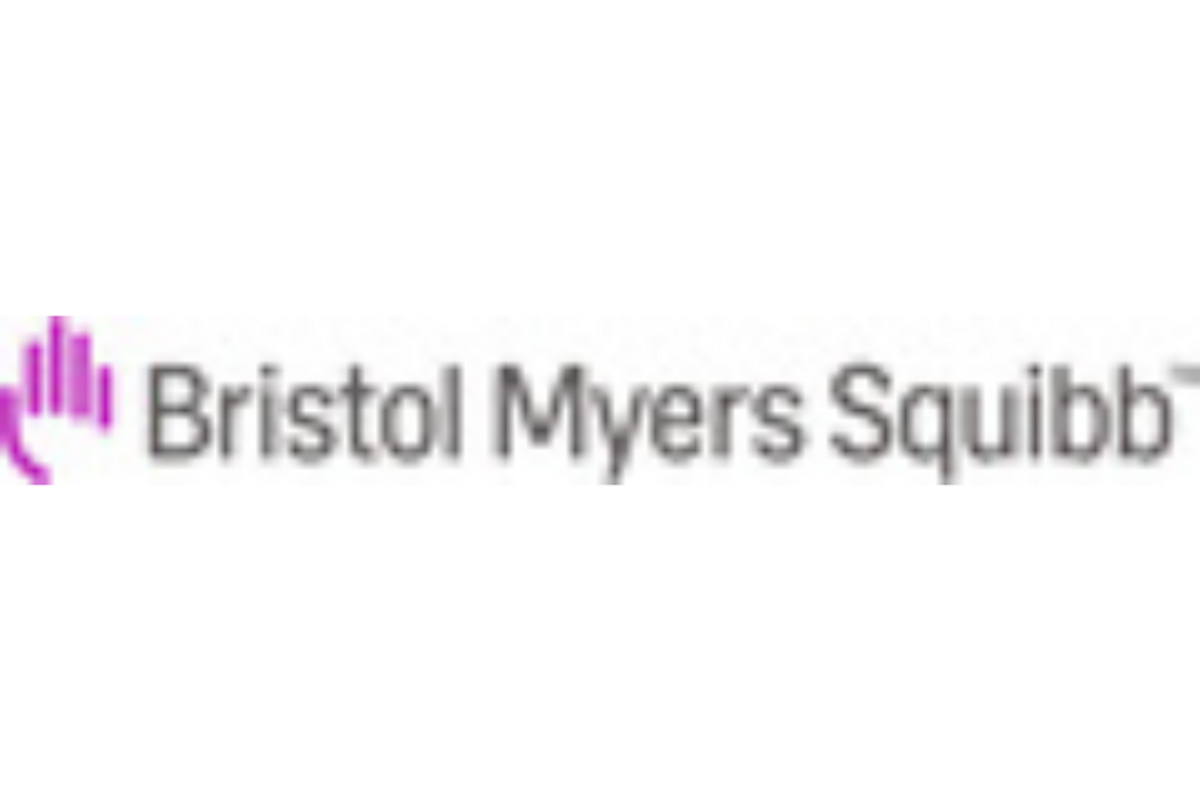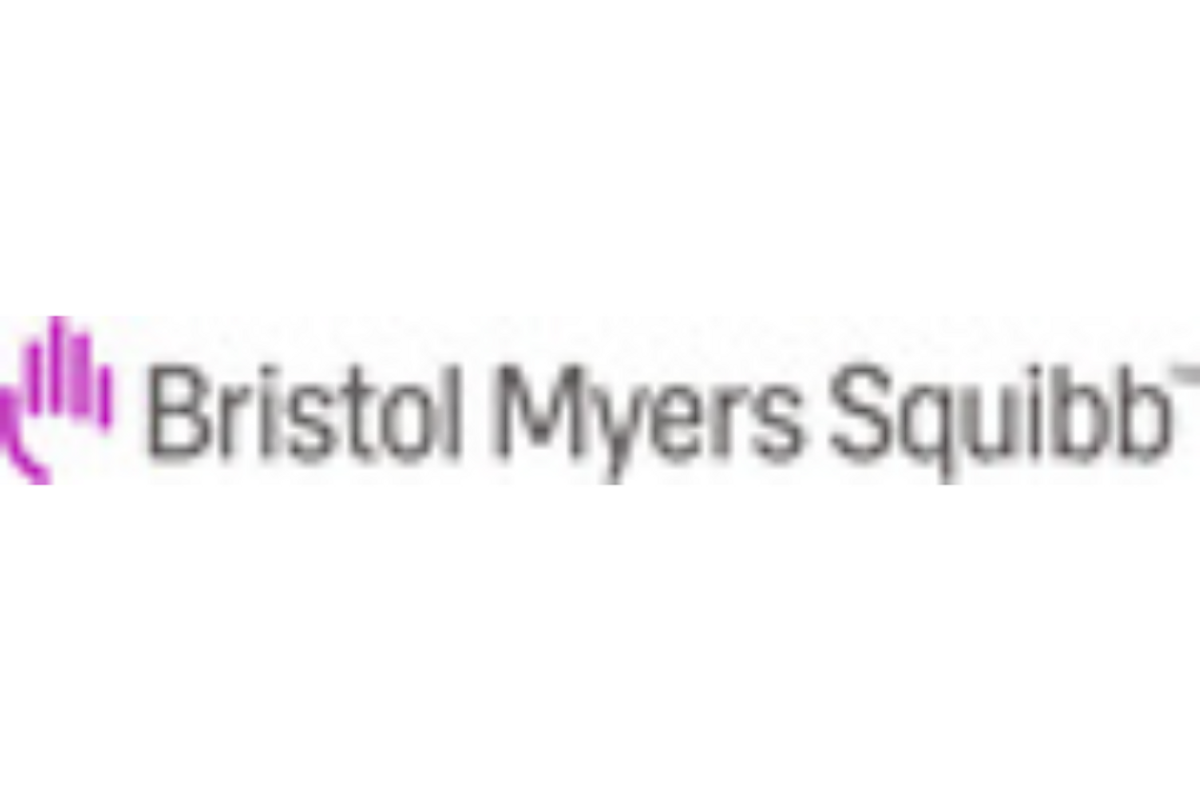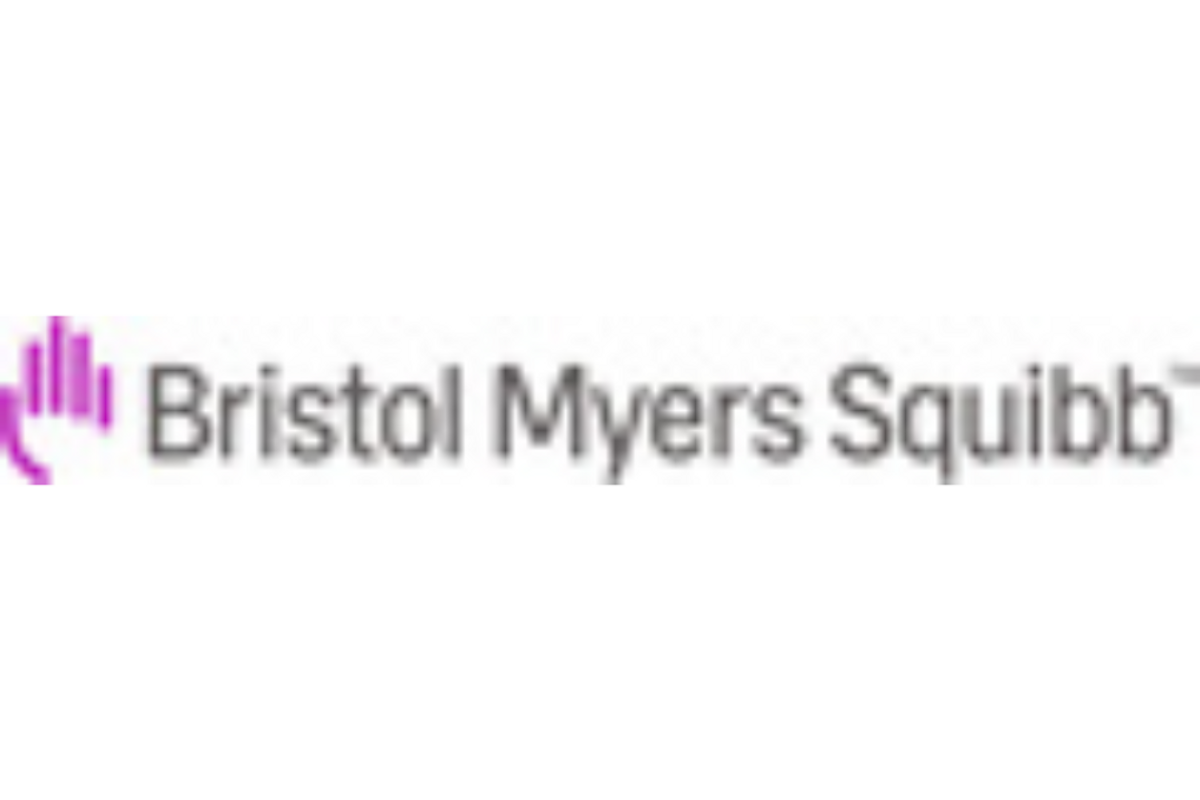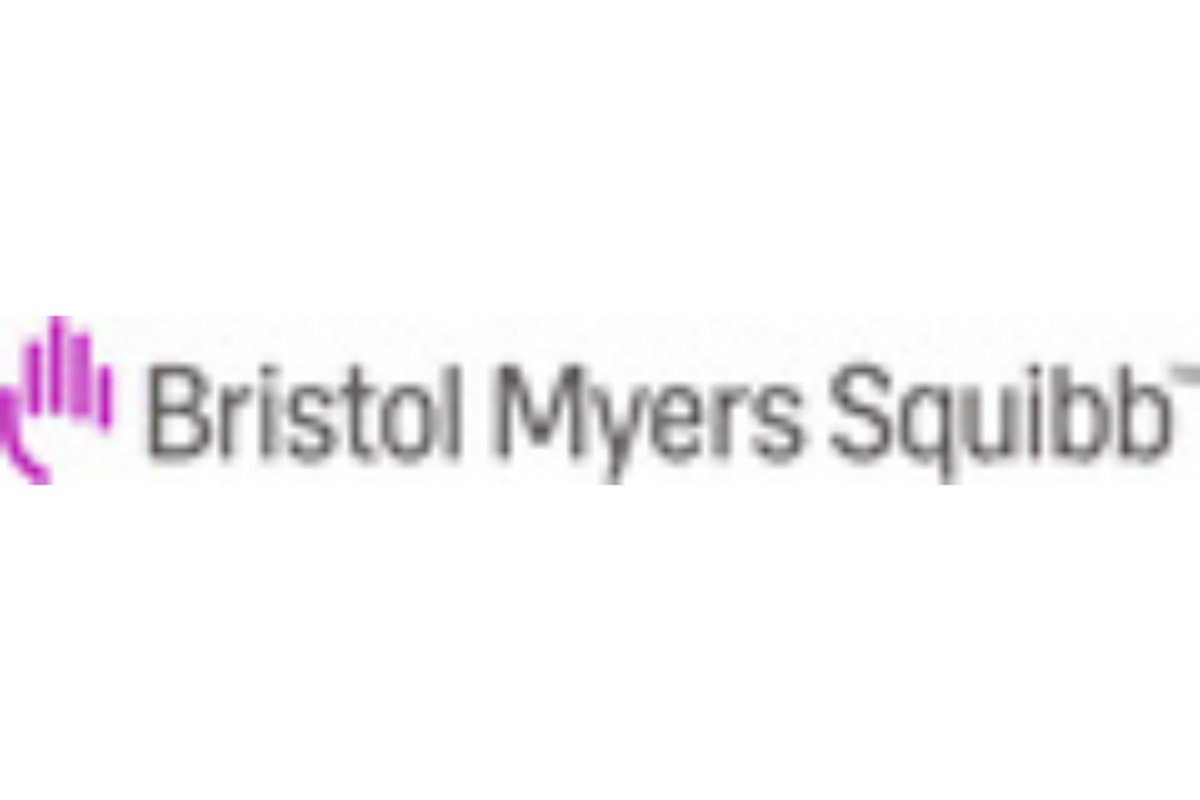U.S. FDA accepted Bristol Myers Squibb and 2seventy bio's supplemental Biologics License Application and has assigned a target action date of December 16, 2023
European Medicines Agency has validated Bristol Myers Squibb's Type II variation application for Abecma
Bristol Myers Squibb's supplemental New Drug Application for Abecma has also been accepted by Japan's Ministry of Health, Labour and Welfare
Applications based on interim results of Phase 3 KarMMa-3 study, the first and only randomized, controlled study designed to evaluate a CAR T cell therapy in triple-class exposed relapsed and refractory multiple myeloma, in which Abecma significantly reduced the risk of disease progression or death versus standard regimens
Bristol Myers Squibb (NYSE: BMY) and 2seventy bio, Inc. (Nasdaq: TSVT) today announced that the U.S. Food and Drug Administration (FDA) has accepted the companies' supplemental Biologics License Application (sBLA) for Abecma (idecabtagene vicleucel) with the KarMMa-3 study that investigated the treatment of adult patients with relapsed and refractory multiple myeloma who have received an immunomodulatory agent, a proteasome inhibitor, and an anti-CD38 monoclonal antibody. The FDA has assigned a Prescription Drug User Fee Act (PDUFA) goal date of December 16, 2023. Data from KarMMa-3 were published in The New England Journal of Medicine on February 10, 2023.
"Our continued focus on bringing Abecma into earlier lines of treatment demonstrates our commitment to increasing treatment options and improving outcomes for patients living with multiple myeloma," said Anne Kerber, senior vice president, head of Cell Therapy Development, Bristol Myers Squibb. "This FDA acceptance marks another step forward in our mission by bringing us closer to offering this potentially transformative, one-time CAR T treatment option to more patients."
"Positive results from our Phase 3 KarMMa-3 study demonstrate a significant clinical benefit of Abecma across lines of care in triple-class exposed multiple myeloma," said Steve Bernstein, M.D., chief medical officer, 2seventy bio. "The acceptance of the sBLA brings us closer to expanding the benefits of Abecma to myeloma patients earlier in their treatment course."
Additional Regulatory Acceptances Granted to Bristol Myers Squibb
The European Medicines Agency (EMA) has also validated Bristol Myers Squibb's Type II variation application for Abecma based on the KarMMa-3 study. Validation of the application confirms the submission is complete and begins the procedure and scientific assessment.
In addition, Japan's Ministry of Health, Labour and Welfare has accepted Bristol Myers Squibb's supplemental New Drug Application (sNDA) for Abecma based on the KarMMa-3 study.
"The KarMMa-3 study has shown the clear clinical benefit of Abecma over existing standard of care regimens and, if approved, the potential for this anti-BCMA CAR T cell therapy to become a standard of care earlier in the treatment course for relapsed and refractory multiple myeloma," said Adam Lenkowsky, senior vice president, head of Major Markets, Bristol Myers Squibb. "These global regulatory acceptances of BMS' applications represent important additional progress across three regions with significant patient need in triple-class exposed multiple myeloma."
The three regulatory applications were based on interim results from the pivotal, Phase 3, open-label, global, randomized, controlled KarMMa-3 study evaluating Abecma compared with standard combination regimens. The study enrolled patients who were treated with an immunomodulatory agent, a proteasome inhibitor, and daratumumab, which are the most commonly used standard treatments in multiple myeloma. Growing use of daratumumab in frontline and early-line relapse has led to an increasing unmet need for patients following treatment with the three most common classes of antimyeloma agents, for whom there is no clear treatment paradigm and often very poor outcomes with current standards of care. Results of the KarMMa-3 study showed treatment with Abecma demonstrated a statistically significant and clinically meaningful improvement in progression-free survival and overall response rate, and safety results were consistent with the well-established and generally predictable safety profile of Abecma . Based on results from KarMMa-3, Abecma is the first and only CAR T cell therapy to demonstrate superiority over standard regimens in a randomized, controlled Phase 3 trial designed to evaluate patients with triple-class exposed relapsed and refractory multiple myeloma.
Please see the Important Safety Information section below, including Boxed WARNINGS for Abecma regarding cytokine release syndrome, neurologic toxicities, Hemophagocytic Lymphohistiocytosis/Macrophage Activation Syndrome and Prolonged Cytopenia. Abecma is also approved in the European Union, Switzerland, the United Kingdom, Japan, Canada, and Israel for adult patients with triple-class exposed relapsed and/or refractory multiple myeloma after three to four or more prior lines of therapy.
About KarMMa-3
KarMMa-3 (BB2121-MM-003, NCT03651128) is a pivotal, Phase 3, open-label, global, randomized, controlled trial evaluating Abecma compared to standard regimens in patients with relapsed and refractory multiple myeloma who have received two to four prior lines of treatment, including an immunomodulatory agent, a proteasome inhibitor, and daratumumab and were refractory to the last treatment regimen. Patients were randomized to receive Abecma or standard regimens that consisted of combinations that included daratumumab, pomalidomide, and dexamethasone (DPd), daratumumab, bortezomib, and dexamethasone (DVd), ixazomib, lenalidomide, and dexamethasone (IRd), carfilzomib and dexamethasone (Kd) or elotuzumab, pomalidomide and dexamethasone (EPd) chosen by investigators based on their most recent treatment regimen. The primary endpoint evaluated in this study is progression-free survival, defined as time from randomization to the first documentation of progressive disease or death due to any cause, whichever occurs first. Key secondary endpoints include overall response rate and overall survival.
About Abecma
Abecma recognizes and binds to BCMA on the surface of multiple myeloma cells leading to CAR T cell proliferation, cytokine secretion, and subsequent cytolytic killing of BCMA-expressing cells. Abecma is being jointly developed and commercialized in the U.S. as part of a Co-Development, Co-Promotion, and Profit Share Agreement between Bristol Myers Squibb and 2seventy bio. Bristol Myers Squibb assumes sole responsibility for Abecma drug product manufacturing and commercialization outside of the U.S.
The companies' broad clinical development program for Abecma includes ongoing and planned clinical studies (KarMMa-2, KarMMa-3, KarMMa-9) in earlier lines of treatment for patients with multiple myeloma. For more information visit clinicaltrials.gov .
U.S. Important Safety Information
BOXED WARNING: CYTOKINE RELEASE SYNDROME, NEUROLOGIC TOXICITIES, HLH/MAS, AND PROLONGED CYTOPENIA
- Cytokine Release Syndrome (CRS), including fatal or life-threatening reactions, occurred in patients following treatment with ABECMA. Do not administer ABECMA to patients with active infection or inflammatory disorders. Treat severe or life-threatening CRS with tocilizumab or tocilizumab and corticosteroids.
- Neurologic Toxicities, which may be severe or life-threatening, occurred following treatment with ABECMA, including concurrently with CRS, after CRS resolution, or in the absence of CRS. Monitor for neurologic events after treatment with ABECMA. Provide supportive care and/or corticosteroids as needed.
- Hemophagocytic Lymphohistiocytosis/Macrophage Activation Syndrome (HLH/MAS) including fatal and life-threatening reactions, occurred in patients following treatment with ABECMA. HLH/MAS can occur with CRS or neurologic toxicities.
- Prolonged Cytopenia with bleeding and infection, including fatal outcomes following stem cell transplantation for hematopoietic recovery, occurred following treatment with ABECMA.
- ABECMA is available only through a restricted program under a Risk Evaluation and Mitigation Strategy (REMS) called the ABECMA REMS
WARNINGS AND PRECAUTIONS:
Cytokine Release Syndrome (CRS): CRS, including fatal or life-threatening reactions, occurred following treatment with ABECMA in 85% (108/127) of patients. Grade 3 or higher CRS occurred in 9% (12/127) of patients, with Grade 5 CRS reported in one (0.8%) patient. The median time to onset of CRS, any grade, was 1 day (range: 1 - 23 days) and the median duration of CRS was 7 days (range: 1 - 63 days). The most common manifestations included pyrexia, hypotension, tachycardia, chills, hypoxia, fatigue, and headache. Grade 3 or higher events that may be associated with CRS include hypotension, hypoxia, hyperbilirubinemia, hypofibrinogenemia, acute respiratory distress syndrome (ARDS), atrial fibrillation, hepatocellular injury, metabolic acidosis, pulmonary edema, multiple organ dysfunction syndrome, and HLH/MAS.
Identify CRS based on clinical presentation. Evaluate for and treat other causes of fever, hypoxia, and hypotension. CRS has been reported to be associated with findings of HLH/MAS, and the physiology of the syndromes may overlap. In patients with progressive symptoms of CRS or refractory CRS despite treatment, evaluate for evidence of HLH/MAS.
Fifty four percent (68/127) of patients received tocilizumab (single dose: 35%; more than 1 dose: 18%). Overall, 15% (19/127) of patients received at least 1 dose of corticosteroids for treatment of CRS. All patients that received corticosteroids for CRS received tocilizumab. Ensure that a minimum of 2 doses of tocilizumab are available prior to infusion of ABECMA.
Monitor patients at least daily for 7 days following ABECMA infusion at the REMS-certified healthcare facility for signs or symptoms of CRS and monitor patients for signs or symptoms of CRS for at least 4 weeks after ABECMA infusion. At the first sign of CRS, institute treatment with supportive care, tocilizumab and/or corticosteroids as indicated.
Counsel patients to seek immediate medical attention should signs or symptoms of CRS occur at any time.
Neurologic Toxicities: Neurologic toxicities, which may be severe or life-threatening, occurred following treatment with ABECMA in 28% (36/127) of patients receiving ABECMA, including Grade 3 in 4% (5/127) of patients. One patient had ongoing Grade 2 neurotoxicity at the time of death. Two patients had ongoing Grade 1 tremor at the time of data cutoff. The median time to onset of neurotoxicity was 2 days (range: 1 - 42 days). CAR T cell-associated neurotoxicity resolved in 92% (33/36) of patients with a median time to resolution of 5 days (range: 1 - 61 days). The median duration of neurotoxicity was 6 days (range: 1 - 578) in all patients including 3 patients with ongoing neurotoxicity. Thirty-four patients with neurotoxicity had CRS with onset in 3 patients before, 29 patients during, and 2 patients after CRS. The most frequently reported manifestations of CAR T cell-associated neurotoxicity include encephalopathy, tremor, aphasia, and delirium. Grade 4 neurotoxicity and cerebral edema in 1 patient, Grade 3 myelitis, and Grade 3 parkinsonism have been reported with ABECMA in another study in multiple myeloma.
Monitor patients at least daily for 7 days following ABECMA infusion at the REMS-certified healthcare facility for signs or symptoms of neurologic toxicities and monitor patients for signs or symptoms of neurologic toxicities for at least 4 weeks after ABECMA infusion and treat promptly. Rule out other causes of neurologic symptoms. Neurologic toxicity should be managed with supportive care and/or corticosteroids as needed.
Counsel patients to seek immediate medical attention should signs or symptoms occur at any time.
Hemophagocytic Lymphohistiocytosis (HLH)/Macrophage Activation Syndrome (MAS): HLH/MAS occurred in 4% (5/127) of patients receiving ABECMA. One patient developed fatal multi-organ HLH/MAS with CRS and another patient developed fatal bronchopulmonary aspergillosis with contributory HLH/MAS. Three cases of Grade 2 HLH/MAS resolved. All events of HLH/MAS had onset within 10 days of receiving ABECMA with a median onset of 7 days (range: 4 - 9 days) and occurred in the setting of ongoing or worsening CRS. Two patients with HLH/MAS had overlapping neurotoxicity. The manifestations of HLH/MAS include hypotension, hypoxia, multiple organ dysfunction, renal dysfunction, and cytopenia. HLH/MAS is a potentially life-threatening condition with a high mortality rate if not recognized early and treated. Treatment of HLH/MAS should be administered per institutional guidelines.
ABECMA REMS: Due to the risk of CRS and neurologic toxicities, ABECMA is available only through a restricted program under a Risk Evaluation and Mitigation Strategy (REMS) called the ABECMA REMS. Further information is available at www.AbecmaREMS.com or 1-888-423-5436.
Hypersensitivity Reactions: Allergic reactions may occur with the infusion of ABECMA. Serious hypersensitivity reactions, including anaphylaxis, may be due to dimethyl sulfoxide (DMSO) in ABECMA.
Infections: ABECMA should not be administered to patients with active infections or inflammatory disorders. Severe, life-threatening, or fatal infections occurred in patients after ABECMA infusion. Infections (all grades) occurred in 70% of patients. Grade 3 or 4 infections occurred in 23% of patients. Overall, 4 patients had Grade 5 infections (3%); 2 patients (1.6%) had Grade 5 events of pneumonia, 1 patient (0.8%) had Grade 5 bronchopulmonary aspergillosis, and 1 patient (0.8%) had cytomegalovirus (CMV) pneumonia associated with Pneumocystis jirovecii. Monitor patients for signs and symptoms of infection before and after ABECMA infusion and treat appropriately. Administer prophylactic, pre-emptive, and/or therapeutic antimicrobials according to standard institutional guidelines.
Febrile neutropenia was observed in 16% (20/127) of patients after ABECMA infusion and may be concurrent with CRS. In the event of febrile neutropenia, evaluate for infection and manage with broad-spectrum antibiotics, fluids, and other supportive care.
Viral Reactivation : CMV infection resulting in pneumonia and death has occurred following ABECMA administration. Monitor and treat for CMV reactivation in accordance with clinical guidelines. Hepatitis B virus (HBV) reactivation, in some cases resulting in fulminant hepatitis, hepatic failure, and death, can occur in patients treated with drugs directed against plasma cells. Perform screening for CMV, HBV, hepatitis C virus (HCV), and human immunodeficiency virus (HIV) in accordance with clinical guidelines before collection of cells for manufacturing.
Prolonged Cytopenias: In the clinical study, 41% of patients (52/127) experienced prolonged Grade 3 or 4 neutropenia and 49% (62/127) experienced prolonged Grade 3 or 4 thrombocytopenia that had not resolved by Month 1 following ABECMA infusion. In 83% (43/52) of patients who recovered from Grade 3 or 4 neutropenia after Month 1, the median time to recovery from ABECMA infusion was 1.9 months. In 65% (40/62) of patients who recovered from Grade 3 or 4 thrombocytopenia, the median time to recovery was 2.1 months.
Three patients underwent stem cell therapy for hematopoietic reconstitution due to prolonged cytopenia. Two of the three patients died from complications of prolonged cytopenia. Monitor blood counts prior to and after ABECMA infusion. Manage cytopenia with myeloid growth factor and blood product transfusion support.
Hypogammaglobulinemia: Hypogammaglobulinemia was reported as an adverse event in 21% (27/127) of patients; laboratory IgG levels fell below 500 mg/dl after infusion in 25% (32/127) of patients treated with ABECMA.
Monitor immunoglobulin levels after treatment with ABECMA and administer IVIG for IgG
The safety of immunization with live viral vaccines during or after ABECMA treatment has not been studied. Vaccination with live virus vaccines is not recommended for at least 6 weeks prior to the start of lymphodepleting chemotherapy, during ABECMA treatment, and until immune recovery following treatment with ABECMA.
Secondary Malignancies: Patients treated with ABECMA may develop secondary malignancies. Monitor life-long for secondary malignancies. If a secondary malignancy occurs, contact Bristol-Myers Squibb at 1-888-805-4555 to obtain instructions on patient samples to collect for testing of secondary malignancy of T cell origin.
Effects on Ability to Drive and Operate Machinery: Due to the potential for neurologic events, patients receiving ABECMA are at risk for altered or decreased consciousness or coordination in the 8 weeks following ABECMA infusion. Advise patients to refrain from driving and engaging in hazardous occupations or activities, such as operating heavy or potentially dangerous machinery, during this initial period.
Adverse Reactions: The most common nonlaboratory adverse reactions include CRS, infections – pathogen unspecified, fatigue, musculoskeletal pain, hypogammaglobulinemia, diarrhea, upper respiratory tract infection, nausea, viral infections, encephalopathy, edema, pyrexia, cough, headache, and decreased appetite.
Please see full Prescribing Information , including Boxed WARNINGS and Medication Guide .
Bristol Myers Squibb: Creating a Better Future for People with Cancer
Bristol Myers Squibb is inspired by a single vision—transforming patients' lives through science. The goal of the company's cancer research is to deliver medicines that offer each patient a better, healthier life and to make cure a possibility. Building on a legacy across a broad range of cancers that have changed survival expectations for many, Bristol Myers Squibb researchers are exploring new frontiers in personalized medicine, and through innovative digital platforms, are turning data into insights that sharpen their focus. Deep scientific expertise, cutting-edge capabilities and discovery platforms enable the company to look at cancer from every angle. Cancer can have a relentless grasp on many parts of a patient's life, and Bristol Myers Squibb is committed to taking actions to address all aspects of care, from diagnosis to survivorship. Because as a leader in cancer care, Bristol Myers Squibb is working to empower all people with cancer to have a better future.
Learn more about the science behind cell therapy and ongoing research at Bristol Myers Squibb here .
About Bristol Myers Squibb
Bristol Myers Squibb is a global biopharmaceutical company whose mission is to discover, develop and deliver innovative medicines that help patients prevail over serious diseases. For more information about Bristol Myers Squibb, visit us at BMS.com or follow us on LinkedIn , Twitter , YouTube , Facebook and Instagram .
About 2seventy bio
Our name, 2seventy bio, reflects why we do what we do - TIME. Cancer rips time away, and our goal is to work at the maximum speed of translating human thought into action – 270 miles per hour – to give the people we serve more time. We are building the leading immuno-oncology cell therapy company, focused on discovering and developing new therapies that truly disrupt the cancer treatment landscape. With a deep understanding of the human body's immune response to tumor cells and how to translate cell therapies into practice, we're applying this knowledge to deliver next generation cellular therapies that focus on a broad range of hematologic malignancies, including the first FDA-approved CAR T cell therapy for multiple myeloma, as well as solid tumors. Our research and development are focused on delivering therapies that are designed with the goal to "think" smarter and faster than the disease. Importantly, we remain focused on accomplishing these goals by staying genuine and authentic to our "why" and keeping our people and culture top of mind every day.
For more information, visit www.2seventybio.com .
Follow 2seventy bio on social media: Twitter and LinkedIn .
2seventy bio is a trademark of 2seventy bio, Inc.
Bristol Myers Squibb Cautionary Statement Regarding Forward-Looking Statements
This press release contains "forward-looking statements" within the meaning of the Private Securities Litigation Reform Act of 1995 regarding, among other things, the research, development and commercialization of pharmaceutical products. All statements that are not statements of historical facts are, or may be deemed to be, forward-looking statements. Such forward-looking statements are based on current expectations and projections about our future financial results, goals, plans and objectives and involve inherent risks, assumptions and uncertainties, including internal or external factors that could delay, divert or change any of them in the next several years, that are difficult to predict, may be beyond our control and could cause our future financial results, goals, plans and objectives to differ materially from those expressed in, or implied by, the statements. These risks, assumptions, uncertainties and other factors include, among others, that future study results may not be consistent with the results to date, that Abecma ® (idecabtagene vicleucel) may not receive regulatory approval for the additional indication described in this release in the currently anticipated timeline or at all, that any marketing approvals, if granted, may have significant limitations on their use, and, if approved, whether such product candidate for such additional indication described in this release will be commercially successful . No forward-looking statement can be guaranteed. It should also be noted that acceptance of the sBLA does not change the standards for FDA approval, that validation by the EMA of the application does not change the standards for EMA approval, and that acceptance of the sNDA does not change the standards for Japan's Ministry of Health, Labour and Welfare approval. Forward-looking statements in this press release should be evaluated together with the many risks and uncertainties that affect Bristol Myers Squibb's business and market, particularly those identified in the cautionary statement and risk factors discussion in Bristol Myers Squibb's Annual Report on Form 10-K for the year ended December 31, 2022, as updated by our subsequent Quarterly Reports on Form 10-Q, Current Reports on Form 8-K and other filings with the Securities and Exchange Commission. The forward-looking statements included in this document are made only as of the date of this document and except as otherwise required by applicable law, Bristol Myers Squibb undertakes no obligation to publicly update or revise any forward-looking statement, whether as a result of new information, future events, changed circumstances or otherwise.
2seventy bio Cautionary Note Regarding Forward-Looking Statements
This press release contains "forward-looking statements" within the meaning of the Private Securities Litigation Reform Act of 1995 regarding, among other things, the research, development and commercialization of Abecma ® (idecabtagene vicleucel). All statements that are not statements of historical facts are, or may be deemed to be, forward-looking statements. Such forward-looking statements are based on historical performance and current expectations and projections about our future financial results, goals, plans and objectives and involve inherent risks, assumptions and uncertainties, including internal or external factors that could delay, divert or change any of them in the next several years, that are difficult to predict, may be beyond our control and could cause our future financial results, goals, plans and objectives to differ materially from those expressed in, or implied by, the statements. These risks, assumptions, uncertainties and other factors include, among others, the possibility that Abecma may not receive FDA approval for the indication described in this release in the currently anticipated timeline or at all, that any marketing approvals, if granted, may have significant limitations on their use, that Abecma may not be commercially successful and that collaboration with Bristol Myers Squibb may not continue or be successful. No forward-looking statement can be guaranteed. Forward-looking statements in this press release should be evaluated together with the many risks and uncertainties that affect 2seventy bio's business, particularly those identified in the risk factors discussion in 2seventy bio's Annual Report on Form 10-K, as updated by our subsequent Quarterly Reports on Form 10-Q, Current Reports on Form 8-K and other filings with the Securities and Exchange Commission. The forward-looking statements included in this document are made only as of the date of this document and except as otherwise required by applicable law, 2seventy bio undertakes no obligation to publicly update or revise any forward-looking statement, whether as a result of new information, future events, changed circumstances or otherwise.
Hyperlinks are provided as a convenience and for informational purposes only. Neither Bristol Myers Squibb nor 2seventy bio bears responsibility for the security or content of external websites or websites outside of their respective control.
corporatefinancial-news
View source version on businesswire.com: https://www.businesswire.com/news/home/20230413005797/en/
Bristol Myers Squibb
Media Inquiries:
media@bms.com
Kimberly Whitefield
kimberly.whitefield@bms.com
Investors:
investor.relations@bms.com
2seventy bio
Media & Investors:
Jenn Snyder
617-448-0281
jenn.snyder@2seventybio.com
Morgan Adams
774-313-9852
Morgan.adams@2seventybio.com



